General Health & Tips
General Health & Tips
You will find a number of items in this section including topics such as: –
- Worms Tick & Fleas
- Poisonous Plants
- Dangerous Medicines
- Unsafe Human Foods for Dogs
- First Aid for Dogs
- Grass Seeds
- The ‘Gulpies’
There is also other general health information for owners of all dogs, not just Soft-Coated Wheaten Terriers.
You will also find information about, and how to take part in the Worldwide Soft-Coated Wheaten Terrier Health Survey 2018.
Scroll down to see the sections one by one.
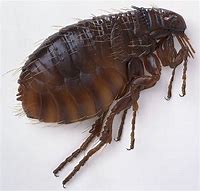
Worms, Ticks & Fleas
One of the topics which concerns many dog owners is how to prevent and control intestinal worms and external parasites like fleas and ticks.
Most dogs will suffer from one of these at some time in their lives; it’s important to mention at this point that although parasites will infect healthy dogs, they really flourish when they attack and colonise weak and sick animals. The principal thing you can do for your dog to prevent infestation is to ensure he or she is as strong and healthy as possible.
Diet plays a vital role in this process and foods which are as close to a natural diet as possible, with a minimum of highly processed ingredients will help to build and maintain a strong immune system. Worms in particular, thrive in the environment created by the sugars and carbohydrates found in the inferior quality kibbles.
It is most important to keep your pet free from infection because some of the parasites which infect dogs and cats can be passed on to you and your children where they can lead to health problems including blindness.
A leaflet providing more information about how to treat worms, fleas and ticks, can be found at the following link – Worming,flea,ticks
Dogs Die in Hot Cars
Never leave your dog alone in a car on a warm day.
Even on a cool day outside, if it is sunny, temperatures inside a car can rise significantly higher in a very short space of time. This can easily kill a dog.
Many people still believe that it’s ok to leave a dog in a car on a warm day if the windows are left open or they’re parked in the shade, but the truth is, it’s still a very dangerous situation for the dog.
A car can become as hot as an oven very quickly, even when it doesn’t feel that warm. When it’s 22 degrees, in a car it can reach an unbearable 47 degrees within the hour.
Please read the advice leaflet, Dogs Die In Hot Cars ,which gives more advice and the dangers involved, and explains what you should do if you see a dog in distress in a hot car, and how to provide emergency first aid for them before seeking urgent veterinary help.
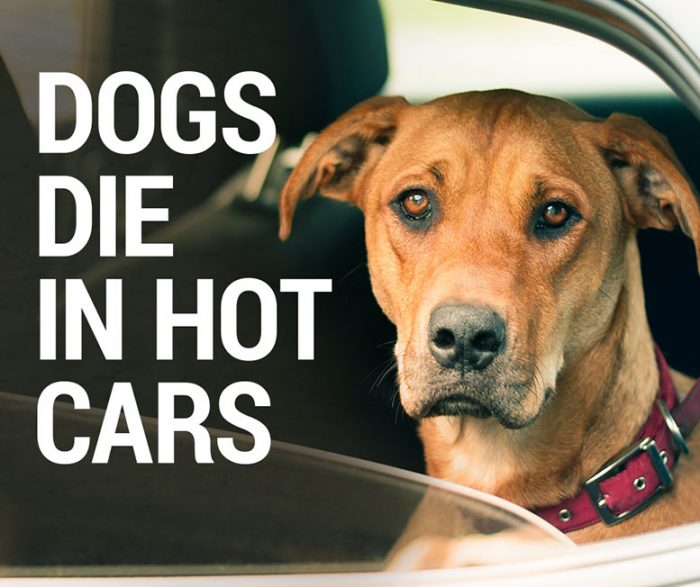

Human Foods Dogs Can & Can't Eat
Dogs cannot eat all the types of foods we humans can. Some foods are unsafe and can cause mild symptons of illness in dogs, but others others can kill a dog.
Some of these unsafe foods are commonly known, such as chocolate, but others may not be so well known such as onions, raw potatoes
You can find a list of some of the humans foods that are safe and unsafe on the attached pdf link – Poisonous Foods for Dogs
Plants That Are Poisonous to Dogs
We all love to see plants and flowers around our home and garden. A bunch of flowers in a vase can brighten a room. A patch of yellow daffodils in the garden, gently nodding their heads in the breeze on a bright, sunny spring day look wonderful.
But have you ever wondered just how safe these plants are for our dogs?
It might surprise you to know just how many plants and flowers, commonly seen in our homes and gardens, are poisonous to dogs.
A list of some of the most common of these poisonous plants and flowers, can be found at the following link – Poisonous Plants


Human Medicines Can Be A Danger For Dogs
When your dog is in pain, your first instinct as a caring owner will be to try and relieve him of it. If you know that a simple muscle strain or bruising is the problem, you may be reluctant to pay for a veterinary consultation.
It is quite common to hear people say that it’s okay to give your dog human medicine such as painkillers, so long as you give a child’s dose or less.
However, this is not true, and this misconception could sentence your dog to permanent damage to his organs or even a painful and unnecessary death.
It is important to always seek veterinary advice on any medication you give to your dog.
A leaflet outlining the dangers of human medication, can be found at the following link – Human Medicine Warnings
First Aid For Dogs
* Would you know how to treat a dog with Heatstroke?
* What would you do if your dog was bitten by an adder when you were out on a walk in the countryside?
* What if he cut his paw and you needed to bandage it – could you do it? Would the bandage stay on?
Whilst expert veterinary advise MUST always be sought for serious injuries, or illnesses, sometimes we need to control the immediate aftermath of an injury, or health problem, before getting the dog to the vet as quickly as possible.
Attending a specific first aid course for pets is an excellent way to get to know just what to do in an emergency, so that you can provide the correct first aid treatment to an animal, before seeking the expert advice of a vet.
Many veterinary practices hold their own first aid courses for pet owners these days, so why not ask your vet if they do or know of somewhere else that does locally. Otherwise there are several other organisations that you can find on line who also run courses.
It is worth just spending a day getting to know some of these first aid skills.
It could save your own dogs life one day!
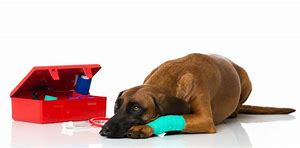
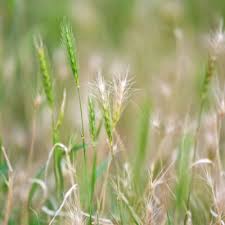
Grass Seeds
• a small open wound or hole that might ooze blood tinged fluid or pus,
• a sudden onset cough that might be noted after a walk in the countryside near long grass, wheat or barley fields,
• sudden onset of sneezing, with and without irritation and rubbing at the nose.
The 'Gulpies'
The ‘Gulpies’ are described as a paroxysmal or spasmodic uncontrollable and involuntary bout of gulps/gags/coughs/retches, etc., almost like a burst of repetitive violent hiccups, made by the dog until it can clear its pharynx or esophagus of some offending material. These can go on for several minutes.
The instinct for the dog to eat roughage or fiber (leaves, rugs, towels, etc.) may be a way of ‘clearing their throat’.
Prof. Meryl Littman has written an article about these, in which she states that this is often associated with GI (gastrointestinal) reflux, inflammatory bowel disease (IBD), and food allergies. Please click on the following link which will open in a new page and a downloadable copy of Prof. Littman’s article – The Gulpies by Prof. Littman – Oct 2019.
She recommends putting the dog on antacids, a strictly hypoallergenic diet and removing any chews, bones, bully sticks, jerkies, rawhides, ears, antlers, hooves, etc. that the dog has access to.
These gulps can sometimes be a precursor to other problems such as more severe IBD, PLE (protein-losing enteropathy) and/or pancreatitis. If these gulps are frequent or persistent you should consult your vet for further advice.
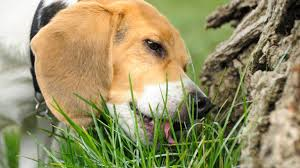
Worldwide SCWT Health Survey 2018
Important – This information is for Wheaten Terrier owners anywhere in the World!
The Wheaten Health Survey is now online!
Please take this survey for any Wheaten Terrier you own, or have owned, since 2000.
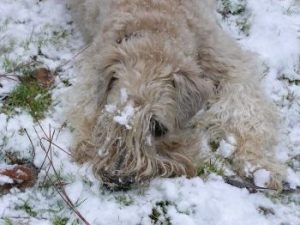
Message from: The Soft-Coated Wheaten Terrier Club of America, Inc.
Dear Wheaten Owners:
The Soft Coated Wheaten Terrier Club of America is dedicated to preservation of the Wheaten Terrier. We are reaching out to all owners of Wheaten Terriers worldwide to participate in an overall Health Survey specifically designed to identify any significant health or temperament concerns in the breed. With your assistance, we will determine the overall health of the breed and prioritize future research. We hope that you will partner with us in this exciting endeavor.
We know you will agree that the Soft Coated Wheaten Terrier is a very special dog and together we will do all in our power to protect and advance the interests of our beloved breed.
How to take this survey
This is an anonymous and confidential survey which is available on Orthopedic Foundation for Animals website.
“OFA offers breed surveys for a number of breed parent clubs.
These surveys are offered free of charge. All data is used only in aggregate and is kept confidential. No survey results will be traceable to any individual dog. It is hoped that this information will be valuable to breed clubs as they assess the health issues of their breed.”
Please complete the survey once for each Wheaten Terrier (purebred only, no mixes) that you have owned between 2000 to the present, living or dead, healthy or with health issues.
At the end of each survey, click “Finish” and then, if reporting more than one dog, simply take the survey again.
The survey should take about ten minutes but be sure you have the dog’s health records at hand when you begin.
For a number of questions to which you respond “yes,” there will more questions to follow about that condition.
Overall results are compiled by OFA and are available on the Survey page.
Health Survey page on the OFA website https://www.ofa.org/health-surveys and select ‘Soft Coated Wheaten Terrier’ from the list.
Please pass the word and ask all Wheaten Terrier owners and breeders to complete the survey for their dogs. Your responses provide invaluable information for the overall health and well-being of our breed.
Thank you for participating in the Soft Coated Wheaten Terrier of America, Inc. Health Survey.



